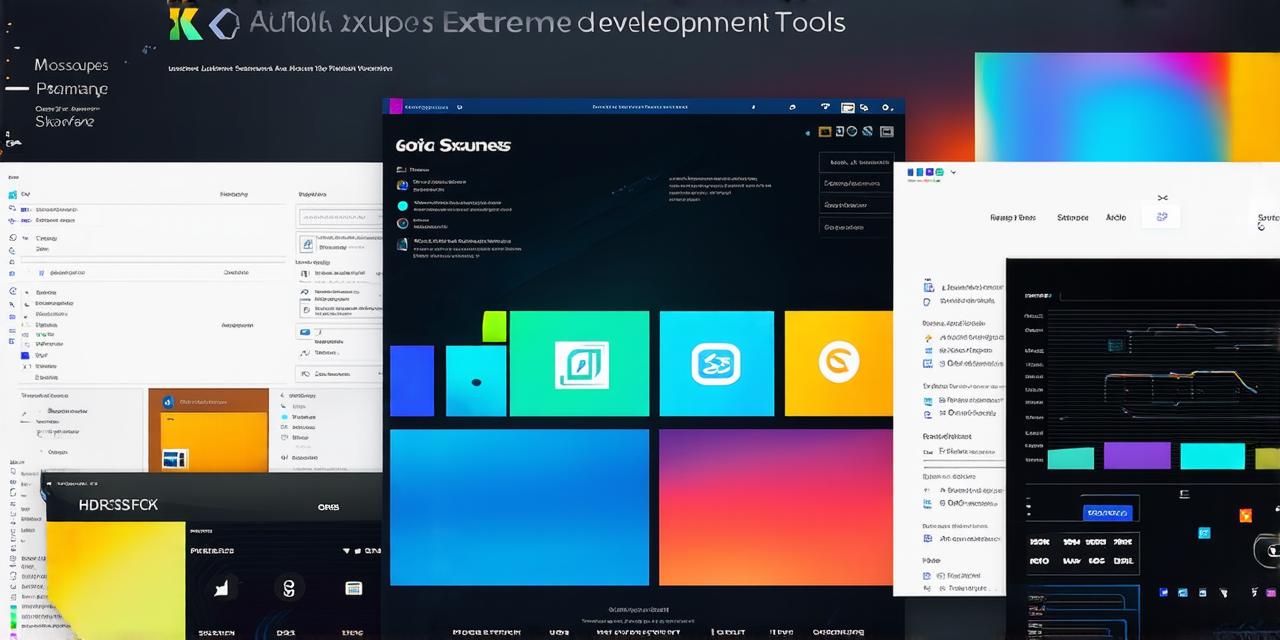What tools are used for developing mobile apps?
Introduction
The world of mobile app development is constantly evolving, with new tools and technologies emerging all the time. However, as a budding app developer, it can be overwhelming to navigate through the endless options available to you. In this comprehensive guide, we will explore the most popular and widely used tools for developing mobile apps across various platforms.
Programming Languages
Before diving into the development process, it’s crucial to understand the programming languages you’ll be working with. There are two primary programming languages used for mobile app development: Java for Android apps and Swift/Objective-C for iOS apps.
Java is a popular choice for developing Android apps due to its compatibility with a wide range of devices and its open-source nature.
Swift, on the other hand, is the primary programming language for iOS apps. It’s known for its speed and simplicity, making it an excellent choice for developers looking to create fast and efficient apps.
Integrated Development Environments (IDEs)
Once you’ve chosen your programming language, the next step is to select an IDE that suits your development needs. An IDE provides developers with a complete set of tools for coding, debugging, and testing their apps.
Android Studio
As mentioned earlier, Android Studio is the official IDE for Android app development. It supports both Java and Kotlin programming languages and provides a user-friendly interface for coding and debugging.
Xcode
Xcode is the official IDE for iOS app development and supports Swift and Objective-C programming languages. It’s known for its speed and simplicity, making it an excellent choice for developers looking to create fast and efficient apps.
MobileFirst Studio
MobileFirst Studio is an open-source IDE that supports both iOS and Android app development. It’s designed to be easy to use and provides developers with a complete set of tools for coding, testing, and deploying their apps. MobileFirst Studio supports Java, Swift, Kotlin, and JavaScript programming languages and integrates with popular cloud services such as Firebase and AWS.
Testing Frameworks
Testing is an essential part of the app development process. It ensures that your app is free from bugs and performs optimally on various devices and platforms.
JUnit
JUnit is a popular testing framework for Java-based Android apps. It’s designed to be easy to use and provides a comprehensive set of tools for writing, running, and debugging tests. JUnit supports both unit and integration testing and integrates with popular testing tools such as TestNG and Maven.
XCUITest
XCUITest is the official testing framework for iOS apps developed in Swift. It’s known for its simplicity and provides developers with a user-friendly interface for writing and running tests. XCUITest supports both unit and integration testing and integrates with popular testing tools such as CocoaPods and Carthage.
Detox
Detox is an open-source testing framework that supports both iOS and Android app development. It’s designed to be easy to use and provides developers with a comprehensive set of tools for writing, running, and debugging tests. Detox supports both unit and integration testing and integrates with popular testing tools such as Mocha and Chai.
Deployment Tools
Once your app is tested and ready for release, the next step is to deploy it to the appropriate app store.
Google Play Store
The Google Play Store is the primary platform for distributing Android apps. Developers can easily publish their apps to the store and reach a vast audience of potential users. To publish an app on the Google Play Store, developers need to create a developer account, follow the submission guidelines, and pay the appropriate fees.
Apple App Store
The Apple App Store is the primary platform for distributing iOS apps. Developers can easily submit their apps to the store and reach a vast audience of potential users. To submit an app to the Apple App Store, developers need to create an Apple Developer account, follow the submission guidelines, and pay the appropriate fees.
Firebase App Distribution
Firebase App Distribution is a popular deployment tool for Android and iOS apps. It’s designed to be easy to use and provides developers with a comprehensive set of tools for deploying and managing their apps. Firebase App Distribution supports both internal and external testing, allowing developers to distribute their apps to beta testers or the public before publishing them on the app store.
Case Studies
Let’s take a look at some real-life examples of how these tools are being used in mobile app development:
Uber
Uber is a popular ride-hailing app that uses both Android and iOS platforms. The company has developed its own proprietary programming language called Swift+, which is based on Swift and provides additional features such as type safety and memory management. Uber’s development team uses Xcode for developing and testing their apps, and they have implemented a continuous integration/continuous deployment (CI/CD) pipeline using popular tools such as Jenkins and Docker.
Instagram is a social media app that uses both Android and iOS platforms. The company uses Java for developing their Android app and Swift for developing their iOS app. Instagram’s development team uses Android Studio for developing and testing their Android app, and they have implemented a CI/CD pipeline using popular tools such as Jenkins and Docker.

Tinder
Tinder is a dating app that uses both Android and iOS platforms. The company uses Java for developing their Android app and Swift for developing their iOS app. Tinder’s development team uses Xcode for developing and testing their iOS app, and they have implemented a CI/CD pipeline using popular tools such as Jenkins and Docker.
Summary
In conclusion, mobile app development requires a combination of programming languages, IDEs, testing frameworks, and deployment tools. By understanding these tools and their features, you can streamline your development process and create high-quality apps that meet the needs of your users. Whether you’re a beginner or an experienced developer, there’s always something new to learn about mobile app development. With the right tools and mindset, you can create apps that are both functional and engaging, and help your business grow.
